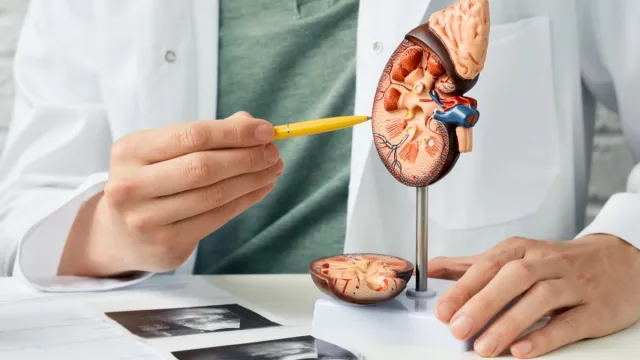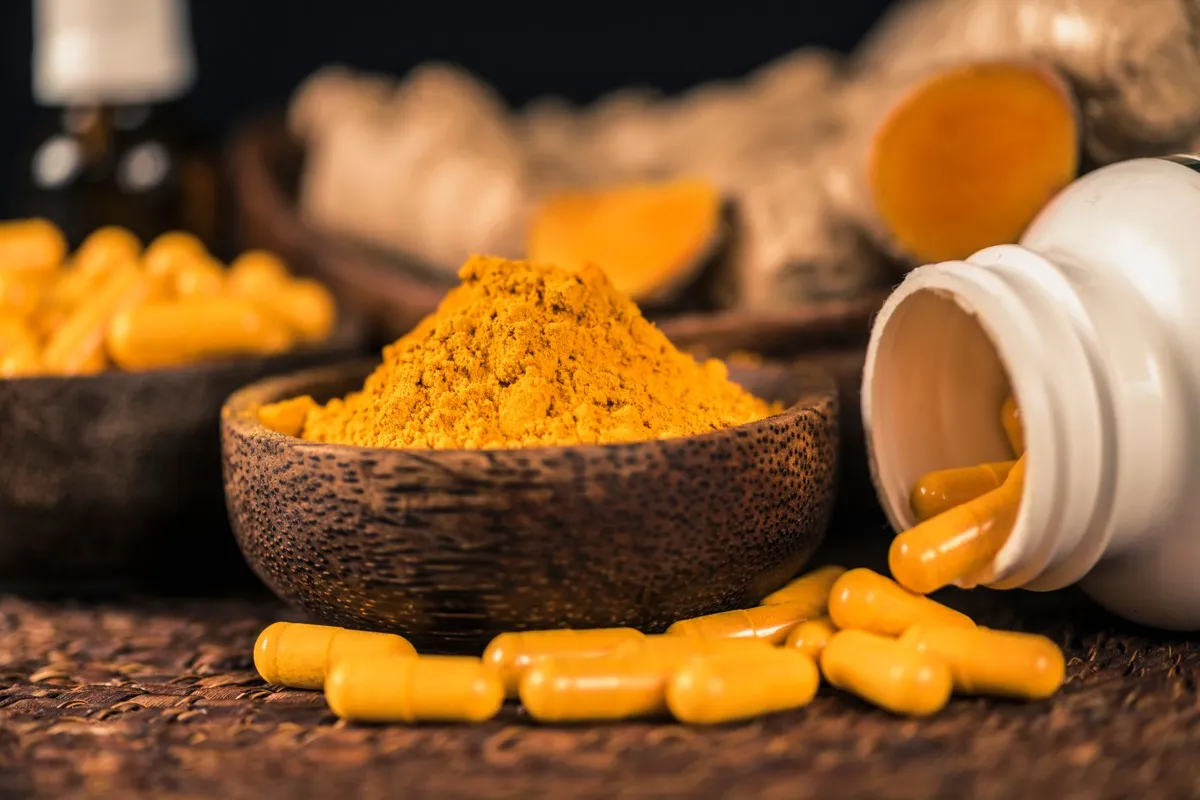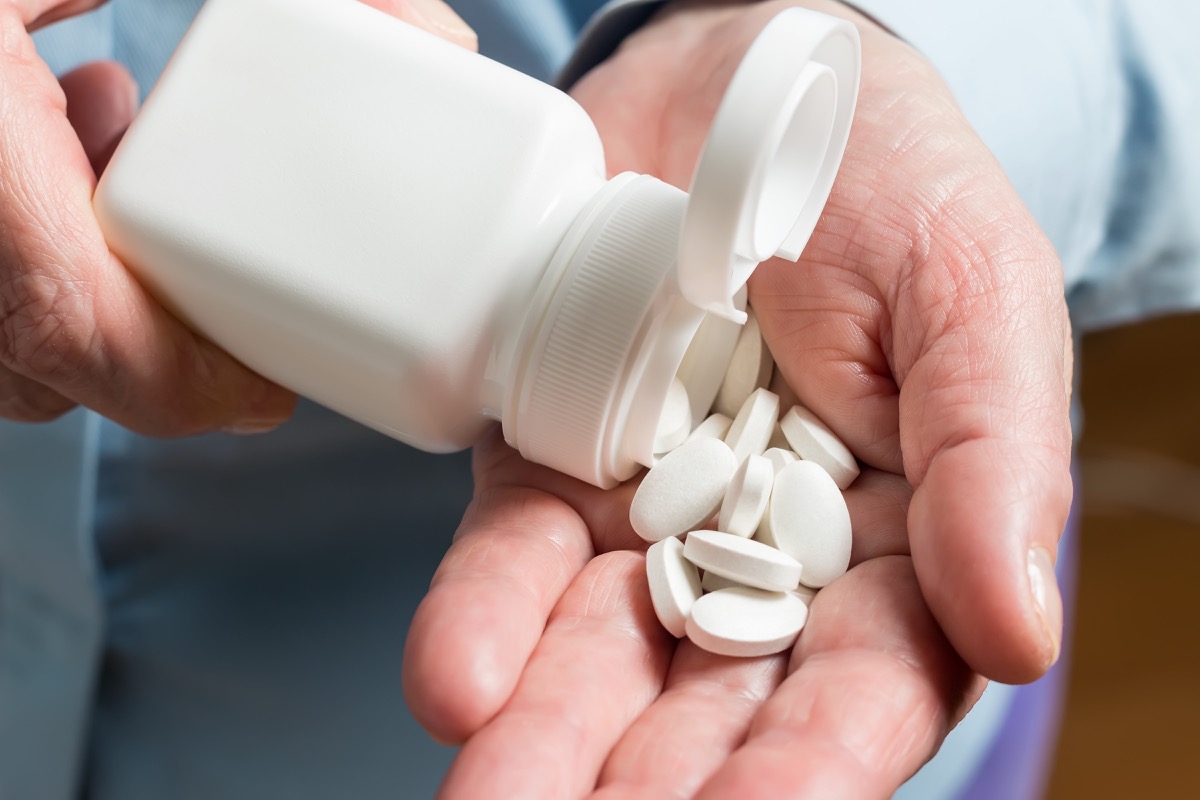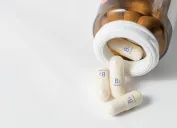5 Supplements That Can Damage Your Kidneys, Doctors Say
Don't assume they're safe just because they're natural.

Many people are familiar with the ways that dietary supplements can enhance their health but are dangerously unfamiliar with how they can harm it. HaVy Ngo-Hamilton, PharmD, a BuzzRx clinical consultant, says it's "a common myth" to think that supplements can't cause any damage or interactions just because they come from natural sources and are readily available over the counter. She warns that many supplements that can cause kidney damage—too many to list, in fact.
"It is not feasible to try to memorize or keep a list of supplements that you should watch out for; the best thing to do to avoid unpleasant or even dangerous drug interactions is to ask your doctor or pharmacist before you start taking any supplements," she says.
However, she notes that there are a handful of supplements that are commonly associated with kidney problems and that being aware of the ones most likely to cause damage can help you avoid serious health issues. Read on to learn five popular supplements that could be harming your kidneys.
RELATED: 12 Supplements You Should Never Take Together, Medical Experts Say.
1
Turmeric

Turmeric, also known as curcumin, is often used for its anti-inflammatory properties. However, Angela Dori, PharmD, a pharmaceutical patient consultant and medical content creator, says that if you have a history of kidney problems including kidney stones, you should avoid taking high doses of turmeric.
"Turmeric contains oxalate, which can bind to minerals, and which can increase the risk of kidney stones," she recently shared in a TikTok post.
2
Vitamin C

Dori also says it's important to avoid "mega-doses" of vitamin C. Though the daily recommended amount is 75 mg for women and 90 mg for men according to the Mayo Clinic, many people take supplements in 1,000 mg doses that far surpass the body's needs.
"Excess vitamin C is excreted as oxalate, which can form kidney stones," she warns.
"The high, toxic dose of vitamin C has been proven to cause hyperoxaluria and complications like acute kidney injury," confirms a 2023 study that links vitamin C supplements to renal failure.
RELATED: Man Killed by Vitamin D: "Supplements Can Have Very Serious Risks," Coroner Says.
3
Vitamin D

Both experts warn that taking vitamin D can also have adverse effects on the kidneys.
"Vitamin D supplements can interact with aluminum-containing phosphate binders often used in chronic kidney disease patients to reduce the phosphate levels in the blood," Ngo-Hamilton explains. "Therefore, vitamin D can result in harmful levels of aluminum in people with chronic kidney disease."
However, Ngo-Hamilton notes that this doesn't necessarily mean that people with kidney disease should not take vitamin D supplements. "As long as your doctor is aware, they can recommend a safe dosage for you, in addition to periodic blood work to monitor blood levels of different minerals," she tells Best Life.
4
Calcium

Next, Dori recommends avoiding high doses of calcium, especially if you take it with vitamin C. "Calcium is excreted through urine, and most kidney stones are composed of calcium and oxalate," she says.
However, she notes that taking magnesium and vitamin B6 can help offset the effects of calcium supplements under your doctor's supervision.
RELATED: Never Buy Multivitamins With These 6 Ingredients, Doctors Say.
5
Potassium

Potassium supplements are available over the counter, but Harvard Health Publishing says you should not take a daily potassium supplement unless your doctor has prescribed it. One of the many reasons is that it can cause kidney damage and hyperkalemia, the condition of having unsafe high serum or plasma potassium levels.
"People with chronic kidney disease, including those on dialysis, must watch their potassium intake to prevent potassium accumulation in the blood," explains Ngo-Hamilton. "Hyperkalemia causes nausea, vomiting, muscle cramps, weakness, and tiredness. Severe hyperkalemia can cause heart rhythm problems and even death. Therefore, unknowingly taking herbal supplements that contain potassium can further increase the risk of hyperkalemia."
If you experience symptoms of kidney damage, it's important to share a list of every medication and supplement you're taking with your doctor. They can help you determine whether one of your supplements is to blame, or if there is another underlying cause.
Best Life offers the most up-to-date information from top experts, new research, and health agencies, but our content is not meant to be a substitute for professional guidance. When it comes to the medication you're taking or any other health questions you have, always consult your healthcare provider directly.
- Source: Mayo Clinic: Is it possible to take too much vitamin C?
- Source: Cleveland Clinic: Hyperoxaluria
- Source: Megadose Vitamin C Prescription Through Alternative Medicine Leading to End-Stage Renal Disease
- Source: Harvard Health Publishing: Should I take a potassium supplement?
- Source: Cleveland Clinic: Hyperkalemia





















